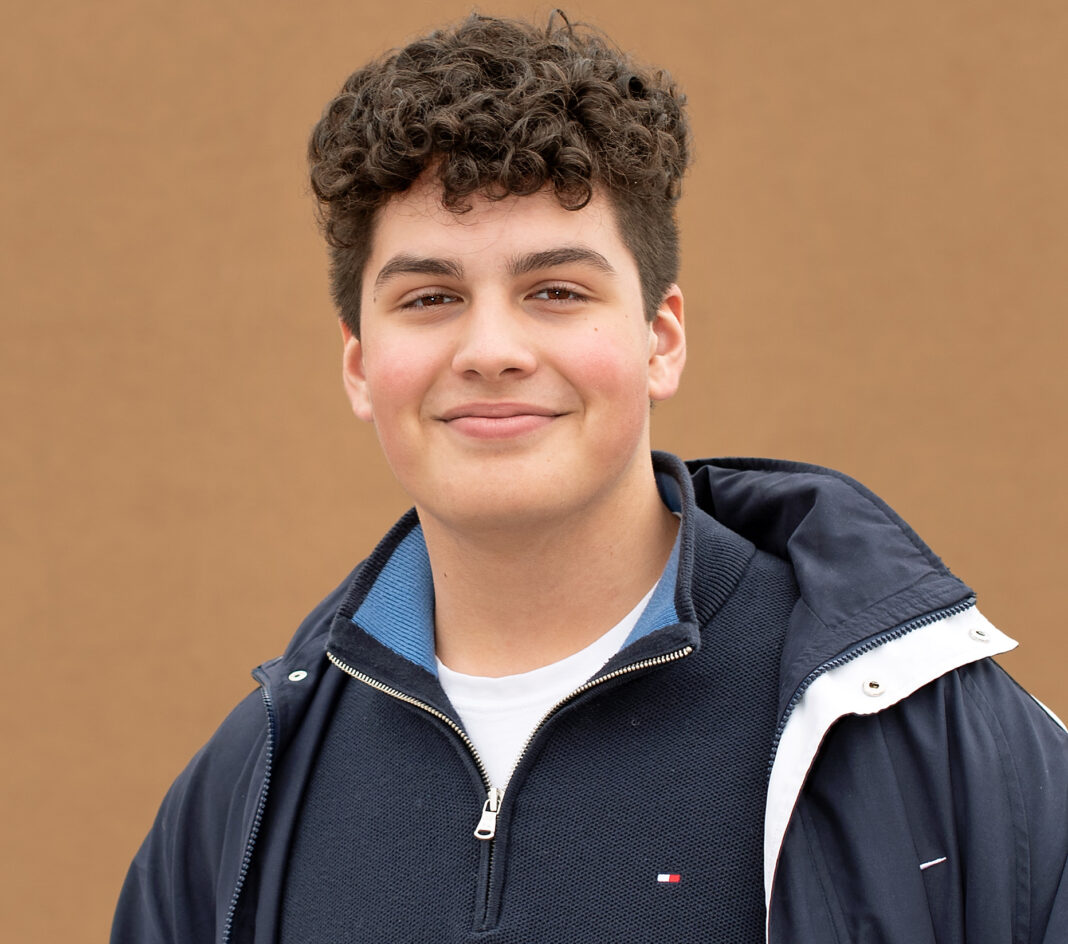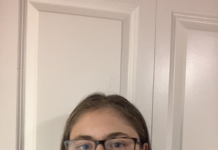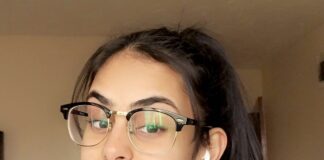Hello, FIRST community! While there may be a variety of ages reading this issue, this article is aimed at those who will be graduating high school in the upcoming years! One major question you may have about the post-secondary application process likely involves scholarships. Multiple FIRST Canada youth council members have won major scholarships to help finance their education. Below is the advice of Jordan C., a youth council alumni, who won the TD National Scholarship for Community Leadership, LORAN Scholarship Provincial-Territorial Award and Semi-Finalist, Queen’s Commitment Scholars Award, McMaster FIRST Alumni Scholarship, McMaster SHAD Alumni Scholarship, McMaster Brighter World Award, McMaster Engineering Excellence Award and the McMaster Research Experience Award.
How did you tackle writing scholarship applications? Did you have a certain process for essays, short answer questions, etc.?
I think there were various things that I did and strategies I used in the scholarship application process. I’ll try to list as many of them here as possible.
Writing about yourself in a flattering way efficiently (making the best out of your space) – Depending on the awards and scholarships you apply for, you’ll only have a limited amount of space and character to talk about whatever the scholarship provider wants to know. (ex. The McMaster Engineering major admission awards application was in the form of a pdf where you could write as much as you wanted on portions, but you were confined to a non-expandable box, whereas others like the TD Scholarship for Community Leadership had character count or word limits.) In nearly every scholarship and major awards application I did, there was a section for you to list off your extracurricular/community involvement – the character count for these is typically VERY small, the most space I think that I have seen for a singular activity in these lists was 500 characters? So every word counts. You want to be able to succinctly describe your activities and achievements, but you also don’t want to shortchange yourself. I often did a lot of rewriting in these sections so that I could make sure that I covered everything that was pertinent to a particular application. Some of the strategies I used in this process were sometimes just little things like toggling with the interface to see, for example, what counted as “one word” or, what took up character space. (Does the platform count punctuation and spaces as characters? If I were to attach multiple words together with a “/”, [ex. “lead/contribute”] does the interface read it as one word?) I also tried to research more about the award/scholarship to see if there were buzzwords that fit the award criteria that I could integrate into my extracurricular/community involvement descriptions and essays. What is the niche of the scholarship you’re applying for? What are they looking for? (Demonstrated leadership? Leadership potential? Positionality reflection? etc.) Regarding buzzwords, I tried to integrate words that, on paper, would not only reflect the full extent of my involvement in an activity but would also highlight its impact. For example, when someone sees the word “national” on an application, it raises and widens the activity’s scope. The same idea applies when you can use statistics to describe your efforts. For example, “…spoke in front of 1000 students” sounds more impressive than “…spoke in front of students”. However, use the previous strategy with discretion and honesty. You must be truthful in your applications, so don’t fudge numbers or overexaggerate estimations and phrase your descriptions in a smart and accurate manner. Also, if there’s any optional writing space – USE IT!! In almost all of my applications, there was space for people to talk about how COVID impacted them, or sometimes there was space for family and personal circumstances. While this may be a good place to talk about any gaps you may have had in your community/extracurricular involvement, I used it as another opportunity to talk about how I could overcome various challenges and obstacles in my own life.
Be creative and tell a story (engage the reader) – In the scholarship and university application process, one of the most important keys to success is standing out from the rest of the pool of applicants. The principle I used to guide myself while writing scholarship essays was to tell a memorable story that no other applicant could possibly tell while still being relevant to the prompt. For example, in one essay that I used for multiple universities and scholarship applications, all of which were successful, I talked about a conundrum I faced when I was six years old. I got a happy meal at Mcdonald’s, but when I opened the toy, I discovered I didn’t get the one I had so desperately hoped for. When I told my mother that I wanted to exchange the opened toy for another one, I was told that I had to essentially “fend for myself” when it came to that request. I related that story and the subsequent events of that episode to how I learned a big life lesson that day and how those lessons have continued to play a role in my decisions and efforts throughout high school and beyond.
If you can start an essay with a WILD and thought-provoking line or story to hook your readers in and then bring them along for the ride of your transformation throughout your writing, I think that it will shape itself into a really powerful and effective essay. Once you have written a few of these stories around “defining moments” for yourself, you can just continue to recycle them and tweak them for various prompts and applications. Once I reached that point in my application journey, things were much easier for me.
If there were interviews involved in your application process, how did you prepare for them?
There were two different kinds of interviews that I had in my scholarship/university application process – KIRA Talent interviews (which are commonly used for some of the more competitive engineering programs/schools), and face-to-face interviews. For both kinds of interviews, I researched and took notes on the program or scholarship I was applying for. I focused on what their “buzzwords” were and what their programming and criteria were about and valued. Using these notes, I made a rough list of things and experiences that I thought would be good to mention, keywords that I wanted to integrate into my answers, and what I wanted to say about myself. I also tried to put myself in my interviewers’ shoes and brainstorm questions I thought I might be asked in specific interviews. To my surprise, I was able to predict the subject matter as well as the exact questions for a lot of them! For my KIRA talent interviews specifically, I set a timer for two minutes (the amount of time you’re typically given for KIRA video questions), and I would just practice answering the questions I had come up with over and over and over again until I felt that my answering was smooth with no stutters and I was in a good rhythm. You only have one shot at KIRA interviews, so you gotta nail it the first time! This stressed me out, so reviewing my notes several times before I did the interviews helped calm my nerves. As for the face-to-face interviews, I needed to keep in mind that I talk REALLY fast when I’m stressed and trying to speak all of my racing thoughts. So I had to remember that I needed to talk slower so that whoever I was talking to could actually hear what I was saying. I put a sign on my wall saying, “Slow Down!” I would also try to read the tone and vibe of the interview as well. For example, one interview that I had was super formal, so maybe if you’re a really bubbly and jokey person like I am, you might need to tone down the intensity of your personality. But for other more casual interviews, leaning into your personality and being lighthearted is a great way to be memorable! I remember one interview I had was like this, so I went all in on being my happy-go-lucky self, and all I can remember is that whenever appropriate, I was firing off zingers one after another, and I managed to make the entire panel of interviewers crack up with nearly every joke that came out of my mouth! But for any formal or casual interview, I would advise trying and making it conversational. These interviews are super nerve-wracking, but your interviewers know this! So take a deep breath, and ground yourself by remembering that a human is talking to you! Not a robot! Try to enjoy talking to this person – because if you are enjoying talking to them, chances are they’re enjoying talking to you too. 🙂
What was your best resource for finding out about different scholarships?
I didn’t really use a resource to search for scholarships because throughout my highschool years, whenever I found a scholarship that I would become eligible for in the 12th grade year, I wrote it down so that when it was time for me to start writing my applications I just had to look back on the list that I kept adding onto for all of those years.
What did you focus on highlighting in your applications?
Honestly, I didn’t really have a strategy on what to “focus” on in my applications because I squeezed in as many things as possible. But when I was describing the things that I did or if I had to talk about one thing, I commonly talked about initiatives I spearheaded, what I accomplished in a specific leadership position I held, my efforts and impact on community involvement, why these things were important to me, how they transformed me, and sometimes if appropriate, I ended with a relevant sentiment or mission for the future as a byproduct of my experiences.
Any last advice?
The scholarship and university application season was BEYOND stressful. I was so worried throughout the process that, for months, I was physically and mentally exhausted. I’ll be really honest here… let’s just say that I could have filled the Pacific Ocean with how many tears I shed over this past year. Grade 12 is going to be a LONG year but keep pushing through! It’s all going to work out in the end!
Also, don’t avoid applying for something because you think you’re underqualified. Take a shot at it! You might surprise yourself! Believe it or not, I almost didn’t apply for the TD Scholarship for Community Leadership. I sure am glad I did!
Lastly, don’t be afraid to reach out if you want someone to glance over an application for you or give you some advice! I succeeded in applying to scholarships, and engineering and health sciences programs with supplementals, so feel free to just to shoot me a message!







